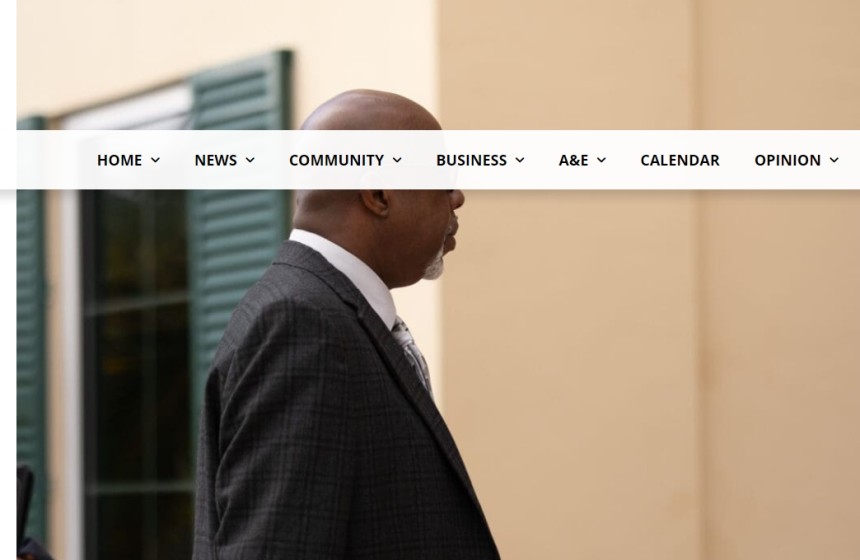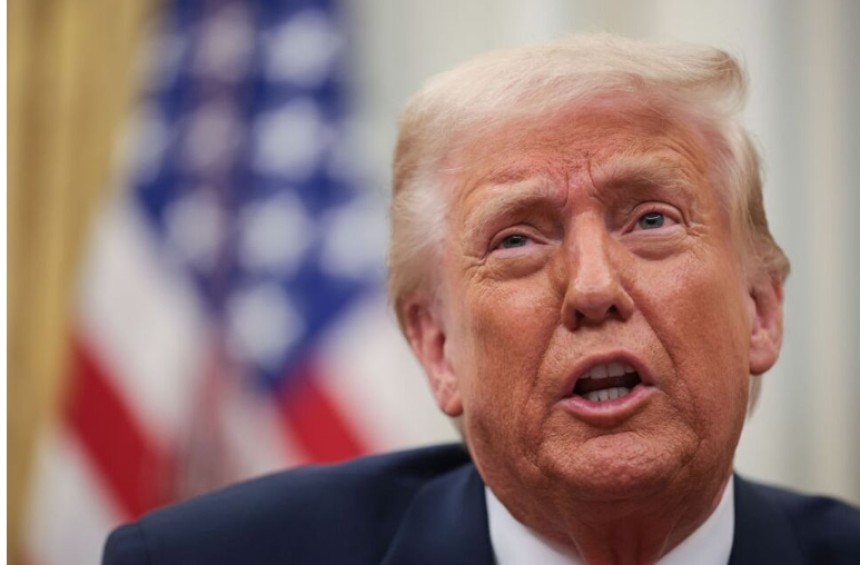
Bryan on Hospitals' CEO Matter: I Wanted Dyma Williams, Dr. Luis Amaro to Remain in Charge
Governor Albert Bryan has said his choices for chief executive officer for the Juan F. Luis Hospital and the Schneider Regional Medical Center were Dyma Williams and Dr. Luis Amaro respectively, telling the Consortium during a Sunday interview that while the territorial and district hospital boards through their law-given autonomy make independent decisions, he believes Ms. Williams and Dr. Amaro, though not perfect, served at a time when the hospitals were under historic pressures, and that yanking them from those positions did not sit right with him.
Mr. Bryan's comments, as the chief executive of the U.S. Virgin Islands, has the power to indirectly sway decisions. While Ms. Williams has been told of her fate, she is expected to be at the hospital until the end of October, and the situation could still change.
Dr. Amaro has already resigned. In a statement announcing his resignation, he said, “After learning from the board of directors that I am no longer a candidate for the permanent CEO position, I spent some time reflecting on my future. It is with a measure of sadness and excitement to tell you that I will be returning my focus full-time to my private practice after ensuring a smooth transition to new executive leadership.
Ms. Williams has not spoken publicly on the matter.
"Dyma is my pick," Mr. Bryan said in a straightforward tone. "She got her ways, but she went through the war of Covid with me and she knows the ins and out. That's my pick. I don't mince my words to say this... I try to stay out of it because it's a board decision. These people went through the depth of Covid with me, she and Dr. Amaro. I know what they could do and I know what they're capable of. I don't know anybody else, those are the people that I support."
Mr. Bryan's comments speak to a chief executive who tries to stay out of the selection process. "I don't get involved; I told them to pick the best person they can," Mr. Bryan said.
He added, "We have a lot of hiccups at the Juan Luis Hospital, but you've got to realize that given the circumstances people have to work under, it's a failing job. Me, I'd hire somebody who knows what the deal is every single day, not somebody who's coming in to learn. But the board, maybe, has a different opinion..."
The governor said while his voice has influence, it was still up to the board. "How I feel is important, but more important is the consensus of the board," he said.
The governor added, "Remember, people watch me govern and they have all kinds of opinions, but there's no way they could ever have as much facts as I have, so when I make a decision they might not understand.
"Now, the board has more intimate knowledge of the relationship between them [Ms. Williams] and the board. When they make that decision, they're working with her every single day doing every single thing...So my perspective is not as in-depth as theirs; I have to rely on them unless I think it's something egregious. That's why I ask that I meet with the CEOs before they are hired. Because when I sit down with them, I'm going to tell them what the deal is."
Mr. Bryan said the role of a CEO for WAPA or even the hospitals is more than meets the eye. He stated that while it is important that one has the requisite skills befitting the position, it was also a job fraught with political potholes that must be navigated by the chosen candidates. "This is a political position," he said. "Whether you like it or not you have a community that you're going to have to answer to every single day, a Legislature you're going to have to answer to every single day, and a board. And if you can't maneuver and understand that situation, you're going to be in trouble."
The governor said it's one of the reasons his administration tries earnestly to hire locals. "Because they know what they're getting into."
Ms. Williams took the helm at the hospital after the turbulent tenure of Ms. Reuben approximately one year to date since the devastating hurricanes of 2017. She has led the medical facility through some of its most difficult adversities, all while working to transition operations from the current building to modular units called JFL North.
Even so, the hospital continues to struggle with operations, with residents routinely lambasting the facility as low quality, many contending they would rather fly to the mainland for health care. Others have spoken of the prolonged wait times at the emergency room, and protracted wait for procedures such as surgeries — a problem compounded by the hospital's financial constraints.





